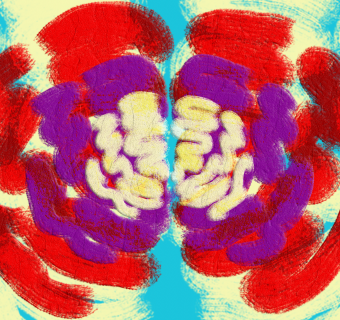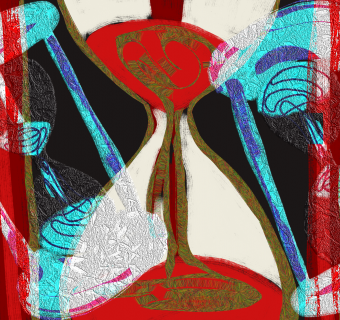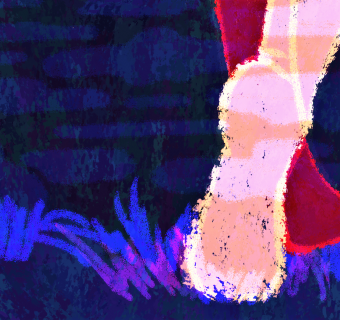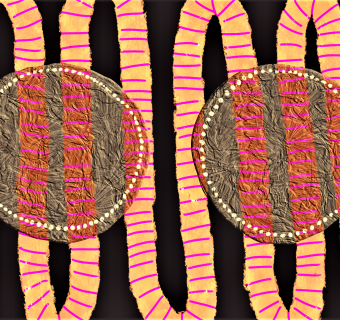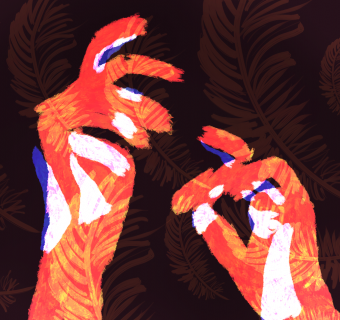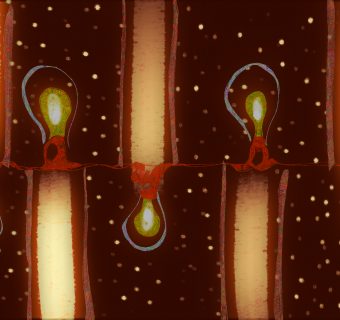Three months after racing through the final hurdles of grad school, applying for and securing jobs, moving in with my then-boyfriend, and starting a so-called "exciting" adult life, time all of a sudden slackened to a halt. I was staring across the kitchen table from someone whom I had loved. Someone whom I had fallen out of love with, whom I tried so hard to fall back in love with, and whom I was now looking at with an unblinking, slightly unfocused stare. I had just attempted to bake “healthy” French fries using the broiler in my oven, and the kitchen held the sickeningly-sweet smell of slightly burnt potatoes close.
"I guess we're doing this then," I said slowly. It was a weirdly calm, smooth summer night. I became conscious of my skipping heartbeat. "Yup," he said. And that was that. He had already moved out of my place, preparing for his final year at school, yet—now that things were officially over—he proceeded to pick out the items he had left behind from his hurried move. Spices from the cabinet, margarita mix I had bought for his birthday and forgot to use, blank CDs. He would come back later to get his bike from the porch when I was at work. It was this off-kilter, arrhythmic night that would help bring everything back to a steady tempo, eventually. Things had been too fast that spring. I remember having this mental flip-book of running a marathon repeat incessantly in my head during that time, when I was trying to finish everything up, package everything up, scratch stuff off the list. My brain thumbed through those running images over and over, scaring me and spurring me to finish. Fear, of the "healthy" adult-variety, was a powerful motivator, getting me to act, to push through, to finish in ways I didn't think possible. After crossing the proverbial finish line in May, I eventually relaxed, took a breather, and took in the summer. I began to think, what now? What do you do after you run for so long, so blinkered? When you realize that everything has been imperceptibly changing—especially your relationships with others, with your work, and most importantly with you, yourself? You're left with just that—you—which can be the scariest thing of all sometimes. By the end of the summer, it was just that, just me. By that point, I was hurt and had no choice but to slow down. I turned inward, trying to better understand myself, outside of anything and anyone else. I narrowed my focus, intensified it, tried to define myself honestly in the immediate present without the weight of memories and others' input. I learned that it’s an impossible luxury to fully and intuitively "get" yourself, but then again, I think it’s a luxury we could all prioritize more. When the fall came around, I started to pick up speed with my know-thyself adventure and stumbled into a realization of what it is that defines me: what I take lightly, what I take seriously, who is it that matters, and who is it that really, you know really, cares about me? "Me," perhaps selfishly, came startlingly back into my vocabulary after I had denied what the word actually meant and what I wanted it to mean for a long time. It's amazing how easy it can be to lose yourself, even when everything seems to be in check and on track. Sometimes you just have to slow down—or be forced to slow down—in order to get to the root of things and carry on. I can already tell that this process will take time and struggle, and be delayed and ugly. But that’s OK; going at it slow is OK. First published in Iris Magazine (Spring: 2011)


